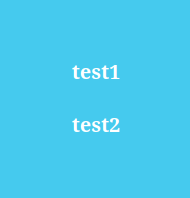props
props简单来说就是向组件中传递数据。很多时候,我们都有类似的需求:我们正在构建一个博客,我们可能需要一个表示博客文章的组件。我们希望所有的博客文章分享相同的视觉布局,但有不同的内容。要实现这样的效果自然必须向组件中传递数据,例如每篇文章标题和内容,这就会使用到 props。
假如我们需要传递给我们博客文章一个标题,我们需要在组件template同级的属性props中声明
1
2
3
4
5
6
7
8
| export default {
template: `
<h4> {{title}} </h4>
`,
props: {
title: String
}
}
|
然后我们可以在父组件这样写
1
2
3
4
5
6
7
8
9
10
11
12
13
14
15
| import Test from "./Test.js";
export default {
components: {Test},
template: `
<test :title="title1"></test>
<test :title="title2"></test>
`,
data() {
return {
title1: 'test1',
title2: 'test2',
}
}
}
|
这样就可以从父组件传递值给Test组件,最终效果如下

结合蛋老师的视频例子来看,我们发现已购清单和未购清单的结构是相同的,因此我们可以写成一个组件,并且利用props达到组件复用的效果
我们可以新建一个AppSectionsList.js来编写我们的子组件,将我们改写后的组件放入
1
2
3
4
5
6
7
8
9
10
11
12
13
14
15
16
17
18
| export default {
template: `
<section v-show="filter.length">
<h2>{{ title }}</h2>
<ul>
<li v-for="food in filter" :key="food.id">
<img :src="food.image">
<span>{{ food.name }}</span>
<input type="checkbox" v-model="food.purchased">
</li>
</ul>
</section>
`,
props: {
title: String,
filter: Array
}
}
|
然后我们要修改我们的父组件
1
2
3
4
5
6
7
8
9
10
11
12
13
14
15
16
17
18
19
20
21
22
23
24
25
26
27
28
29
30
31
32
33
34
35
36
| import AppSectionsList from "./AppSectionsList.js";
export default {
components: {AppSectionsList},
template: `
<app-sections-list
title="已购清单"
:filter="filters.afterBuy">
</app-sections-list>
<app-sections-list
title="未购清单"
:filter="filters.beforeBuy">
</app-sections-list>
`,
data() {
return {
foods: [
{ id: 1, name: '原味鱿鱼丝', image: './images/原味鱿鱼丝.png', purchased: false },
{ id: 2, name: '辣味鱿鱼丝', image: './images/辣味鱿鱼丝.png', purchased: false },
{ id: 3, name: '炭烧味鱿鱼丝', image: './images/炭烧味鱿鱼丝.png', purchased: false }
]
}
},
computed: {
filters() {
return {
beforeBuy: this.foods.filter(item => !item.purchased),
afterBuy: this.foods.filter(item => item.purchased)
}
}
}
}
|
